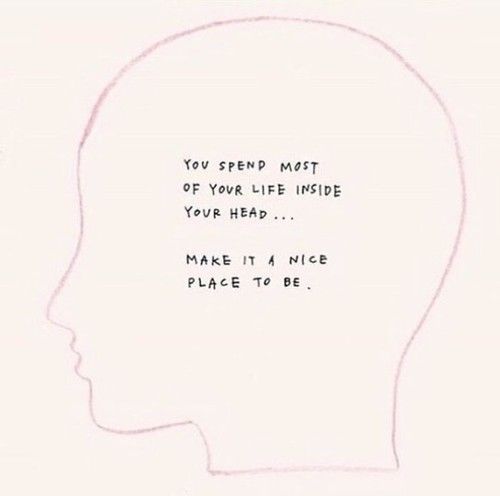“If a person gave away your body to some passerby, you’d be furious. Yet you hand over your mind to anyone who comes along, so they may abuse you, leaving it disturbed and troubled—have you no shame in that?”
Epictetus, via The Daily Stoic (Page 78)
“If someone sends you an angry email but you never see it, did it actually happen? In other words, these situations require our participation, context, and categorization in order to be ‘bad.’ Our reaction is what actually decides whether harm has occurred. If we feel that we’ve been wronged and get angry, of course that’s how it will seem. If we raise our voice because we feel we’re being confronted, naturally a confrontation will ensue. But if we retain control of ourselves, we decide whether to label something good or bad.”
Ryan Holiday, The Daily Stoic (Page 64)
“Circumstances are incapable of considering or caring for your feelings, your anxiety, or your excitement. They don’t care about your reaction. They are not people. So stop acting like getting worked up is having an impact on a given situation. Situations don’t care at all.”
Ryan Holiday, The Daily Stoic (Page 63)
Russell Brand Quote on Self-Image and How What We Justify Is What We Recommit To
“In justifying our misery we recommit to it.”
Russell Brand, Recovery (Page 101)
Beyond the Quote (Day 407)
There’s an expression in the performance world that nobody can outperform his/her own self-image. Meaning, how a person thinks they’ll end up performing is how they’ll most likely end up performing. Self-image becomes a self-fulfilling prophecy.
Read More »Russell Brand Quote on Self-Image and How What We Justify Is What We Recommit To“Many successful people will try to tell you that anger is a powerful fuel in their lives. the desire to ‘prove them all wrong’ or ‘shove it in their faces’ has made many a millionaire. the anger at being called fat or stupid has created fine physical specimens and brilliant minds. The anger at being rejected has motivated many to carve their own path. But that’s shortsighted. Such stories ignore the pollution produced as a side effect and the wear and tear it put on the engine. It ignores what happens when that initial anger runs out—and how now more and more must be generated to keep the machine going (until, eventually, the only source left is anger at oneself).”
Ryan Holiday, The Daily Stoic (Page 50)
“Here’s a funny exercise: think about all the upsetting things you don’t know about—stuff people might have said about you behind your back, mistakes you might have made that never came to your attention, things you dropped or lost without even realizing it. What’s your reaction? You don’t have one because you don’t know about it. In other words, it is possible to hold no opinion about a negative thing. You just need to cultivate that power instead of wielding it accidentally.”
Ryan Holiday, The Daily Stoic (Page 49)
“The next time someone gets upset near you—crying, yelling, breaking something, being pointed or cruel—watch how quickly this statement will stop them cold: ‘I hope this is making you feel better.’ Because, of course, it isn’t. Only in the bubble of extreme emotion can we justify any of that kind of behavior—and when called to account for it, we usually feel sheepish or embarrassed.”
Ryan Holiday, The Daily Stoic (Page 48)
“Who then is invincible? The one who cannot be upset by anything outside their reasoned choice.”
Epictetus, via The Daily Stoic (Page 44)
“We would never let another person jerk us around the way we let our impulses do. It’s time we start seeing it that way—that we’re not puppets that can be made to dance this way or that way just because we feel like it. We should be the ones in control, not our emotions, because we are independent, self-sufficient people.”
Ryan Holiday, The Daily Stoic (Page 42)
“Why do athletes talk trash to each other? Why do they deliberately say offensive and nasty things to their competitors when the refs aren’t looking? To provoke a reaction. Distracting and angering opponents is an easy way to knock them off their game. Try to remember that when you find yourself getting mad. Anger is not impressive or tough—it’s a mistake. It’s weakness.”
Ryan Holiday, The Daily Stoic (Page 41)
“Keep this thought handy when you feel a fit of rage coming on—it isn’t manly to be enraged. Rather, gentleness and civility are more human, and therefore manlier. A real man doesn’t give way to anger and discontent, and such a person has strength, courage, and endurance—unlike the angry and complaining. The nearer a man comes to a calm mind, the closer he is to strength.”
Marcus Aurelius, Meditations, via The Daily Stoic (Page 41)
“I wasted so much energy nursing my bitterness, trying to get back at him and hoping he’d experience as much heartache as I had. But the whole time, I was the one hurting. I was the one who, by living in that negative energy, drew even more of it to myself. It was so backward.”
Alicia Keys, More Myself (Page 121)
“Serenity and stability are the results of your choices and judgment, not your environment. If you seek to avoid all disruptions to tranquility—other people, external events, stress—you will never be successful. Your problems will follow you wherever you run and hide. But if you seek to avoid the harmful and disruptive judgments that cause those problems, then you will be stable and steady wherever you happen to be.”
Ryan Holiday, The Daily Stoic (Page 19)
Ryan Holiday Quote on Time Commitments and Learning To Say “No” To Wasteful Uses of Time
“One of the hardest things to do in life is to say ‘No.’ To invitations, to requests, to obligations, to the stuff that everyone else is doing. Even harder is saying no to certain time-consuming emotions: anger, excitement, distraction, obsession, lust. None of these impulses feels like a big deal by itself, but run amok, they become a commitment like anything else.”
Ryan Holiday, The Daily Stoic (Page 11)
Beyond the Quote (Day 371)
How many time commitments do you have that you don’t even realize you have? I just recently started tracking my screen time on my iPhone and was shocked to see the results. Imagine if your mind had a “use-time” breakdown and showed you in a pie chart how much time you spent thinking about all of the things you think about every day. Would you be just as shocked as I was when I saw my screen time? I suspect even more so.
Read More »Ryan Holiday Quote on Time Commitments and Learning To Say “No” To Wasteful Uses of TimeAn Insightful Short Story About Spilling Coffee — What’s In YOUR Cup?
Excerpt: This short story about spilling coffee shares a powerful analogy that can help you better understand your temperament (and reactions) in life.
Read More »An Insightful Short Story About Spilling Coffee — What’s In YOUR Cup?
“The way you think is the way you feel, but thought and feeling seem to be different in your experience. Why is this so? Because thought has a certain clarity, a certain agility about it. Emotion is slower. Today, you think this is a very wonderful person and you have warm feelings about him. Suddenly, he does something that you don’t like, and you think he is horrible. Your thought tells you he is horrible, but your emotion cannot change immediately. It struggles. If it is sweet now, it cannot turn bitter at the very next moment. It takes time to turn around. It has a wider turning arc. Depending on the strength of your emotion, maybe it will take three days or three months or three years, but after some time, it will turn around.”
Sadhguru, Inner Engineering (Page 192)
“Everybody thinks their job is stressful. No job is stressful. There are many jobs that could present challenging situations. There could be nasty bosses, insecure colleagues, emergency rooms, impossible deadlines—or you might even find yourself in the middle of a war zone! But these are not inherently stressful. It is our compulsive reaction to the situations in which we are placed that causes stress. Stress is a certain level of internal friction. One can easily lubricate the inner mechanism with some amount of inner work and awareness. So, it is your inability to handle your own system that is stressing you out. On some level, you do not know how to handle your body, mind, and emotions; that is the problem.”
Sadhguru, Inner Engineering (Page 141)
The Dalai Lama on Patience and How Maintaining Emotional Balance is a Sign Of Strength
“Many people think that patience is a sign of weakness. I think this is a mistake. It is anger that is a sign of weakness, whereas patience is a sign of strength.”
The Dalai Lama
Beyond the Quote (279/365)
Patience is a sign of a strong, well controlled inner emotional climate. A climate that can be maintained independently of what’s happening on the outside. A climate that can be controlled, manipulated, and adjusted only by the person themself. A climate that nobody else can control, manipulate, or adjust even if they wanted or tried to. It is a sign of strength, self-understanding, and balance. But how to get there?
Read More »The Dalai Lama on Patience and How Maintaining Emotional Balance is a Sign Of StrengthRuth Bader Ginsburg Quote on Intentionally Being A Little Deaf Towards Thoughtless Or Unkind Words
“Another often-asked question when I speak in public: ‘Do you have some good advice you might share with us?‘ Yes, I do. It comes from my savvy mother-in-law, advice she gave me on my wedding day. ‘In every good marriage,’ she counseled, ‘it helps sometimes to be a little deaf.’ I have followed that advice assiduously, and not only at home through fifty-six years of a marital partnership nonpareil. I have employed it as well in every workplace, including the Supreme Court of the United States. When a thoughtless or unkind word is spoken, best tune out. Reacting in anger or annoyance will not advance one’s ability to persuade.”
Ruth Bader Ginsburg, My Own Words
Beyond the Quote (260/365)
In every relationship in life, I think it helps to be a little deaf. And I, nor RBG, mean this in a demeaning, belittling, dismissive way for the other person. We mean it in a self-loving kind of way. We choose to be a little deaf towards the thoughtless and unkind types of remarks. The remarks that are not backed by thought, but are rather reactive, emotional, and are lacking of reason or fact. The remarks that do not serve the higher purpose of advancing the argument, but rather attack the person and are derogatory or unkind in nature. Those are the types of thoughts that should fall on deaf ears.
Read More »Ruth Bader Ginsburg Quote on Intentionally Being A Little Deaf Towards Thoughtless Or Unkind Words

